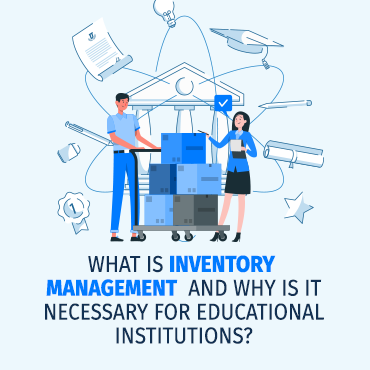Table of Contents
Introduction
What is an Online Parent Portal?
Key Elements in an Online Parent Portal
Transparency and Control
Quick Access to Information
Boosting Parent-Teacher Communications
Monitoring the Child's Progress
Simplifying Online Fee Transaction
Improving Access to Periodic Reports
Secured Access
Receiving Digital Documentation
Conclusion
Introduction
Parents and schools everywhere are discovering the power of online parent portals. It’s easy to see why—real-time access to student data, streamlined communication, and a personalized dashboard for each parent make these platforms essential in modern education.
But what makes an online parent portal truly effective? In this article, we’ll explore the key features that contribute to a great parent experience—so institutions can choose the right solution and ensure parents stay informed, engaged, and empowered.
What is an Online Parent Portal?
In today’s digital world, a school isn't complete without an online parent portal. It serves as a centralized hub for parents to stay updated on their child’s academic performance, behavioral insights, attendance, and more.
When integrated with a school’s campus management system, the portal not only automates repetitive administrative tasks but also significantly improves how institutions communicate with parents.
Key Elements in an Online Parent Portal
Transparency and Control
An effective parent portal should offer flexible permission settings. Institutions must be able to decide who can access what data. This ensures data security and privacy, while still maintaining transparency between schools and families.
Quick Access to Information
Parents shouldn’t have to dig through complex menus. The portal should provide:
Instant access to student records, homework, and exam schedules
Admission and fee details
An intuitive, user-friendly interface
This helps parents quickly evaluate their child’s academic progress and make informed decisions.
Boosting Parent-Teacher Communications
Open communication between teachers and parents is vital for a child’s holistic development. The portal should facilitate:
Easy messaging and updates from teachers
Alerts on progress, achievements, or concerns
Scheduled virtual meetings or conferences
A communication-rich platform builds trust and fosters collaboration between home and school.
Monitoring the Child's Progress
Dashboards are a must. The parent portal should display:
With real-time insights, parents stay involved and can address issues before they become problems.
Simplifying Online Fee Transaction
Busy schedules shouldn’t hinder fee payments. A good portal allows:
Secure online transactions
Instant receipts and confirmation
Reminders for due or pending payments
This eliminates the need for physical visits and manual processing, saving time for both parents and school staff.
Improving Access to Periodic Reports
Daily or weekly reports on:
Attendance
Exam results
Fee statements
Homework and assignments
These reports help parents actively support their child’s learning and help institutions identify patterns that affect student performance.
Secured Access
With sensitive student and financial data involved, robust security is non-negotiable. The portal should include:
This ensures compliance with data protection regulations and builds parent trust.
Receiving Digital Documentation
The portal should enable schools to digitize and share:
Parents should be able to download and track documents without administrative hassle.
Conclusion
An online parent portal is more than just a feature—it's a necessity for modern education systems. By incorporating the essential elements discussed above, institutions can offer a platform that strengthens parent engagement, boosts transparency, and enhances overall student outcomes.
If you're looking to implement a robust and user-friendly parent portal, Camu offers a solution that integrates seamlessly with your campus systems.





